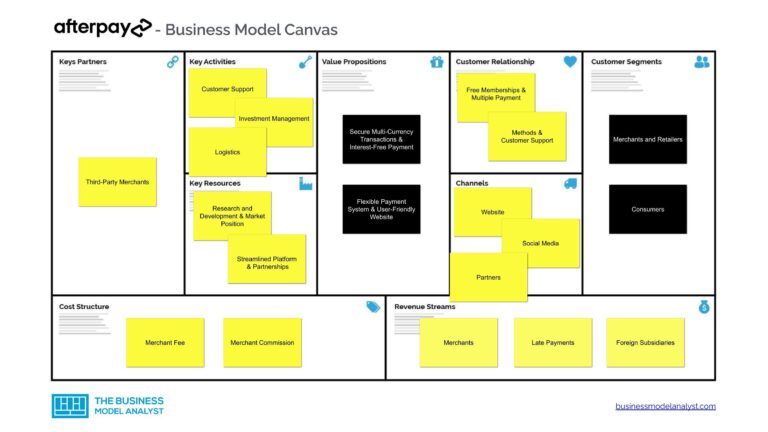Australia’s leading buy-now-pay-later provider Afterpay has come under scrutiny following reports that some users were instructed to close their accounts, only to be subsequently targeted with offers for credit cards. According to Reuters, this sequence of events has raised concerns about the company’s account management practices and its approach to marketing credit products to BNPL customers. The development highlights ongoing tensions within the rapidly evolving consumer finance sector as regulators and consumers alike grapple with the implications of shifting credit behaviors.
Australia’s Afterpay Faces Scrutiny Over BNPL Account Closures and Credit Card Sales
Afterpay, the prominent Australian Buy Now, Pay Later (BNPL) provider, is under investigation following reports that some customers were asked to close their BNPL accounts before being pitched credit card products. Sources indicate that this sales practice has raised concerns from consumer watchdogs, who suspect potential conflicts of interest and regulatory breaches in how Afterpay transitions users from interest-free BNPL services to traditional credit products.
- Customers reportedly received notifications urging account closures without clear explanations.
- Subsequent follow-ups involved offers for credit cards with higher fees and interest rates.
- Consumer advocates question whether the shift aligns with fair lending practices.
| Aspect | BNPL Account | Credit Card |
|---|---|---|
| Interest | Typically 0% | Variable, often above 15% |
| Fees | Minimal or none | Annual fees & late payment charges |
| Repayment Terms | Installments over weeks | Revolving credit facility |
Insight into Consumer Impact and Industry Practices Following Afterpay’s Account Actions
Afterpay’s recent directive for certain Buy Now, Pay Later (BNPL) users to close their accounts has sent ripples throughout the consumer finance market in Australia. Many impacted customers found themselves abruptly cut off from the service they relied upon, often without clear explanation. Subsequently, these users were presented with alternative credit card options from affiliated financial institutions-a move that raises questions about transparency and consumer choice within the rapidly evolving BNPL ecosystem. Critics argue this transition blurs the line between non-revolving credit and traditional credit products, posing potential risks to financially vulnerable users accustomed to interest-free spending.
Industry insiders point to several implications stemming from Afterpay’s strategy:
- Consumer Trust Concerns: Sudden account closures could undermine confidence in BNPL platforms as reliable service providers.
- Regulatory Scrutiny: Regulators may examine the cross-selling of credit products following BNPL account actions for compliance and consumer protection.
- Market Dynamics: Integration of BNPL with credit card offerings might mark a significant shift in the financing landscape, merging revolving and non-revolving credit facilities.
| Aspect | Consumer Outcome | Industry Response |
|---|---|---|
| Account Closure | Disruption in spending capability | Issued formal notices, offered alternatives |
| Credit Card Offer | Shift from interest-free to revolving credit | Promoted partnerships with lending institutions |
| Consumer Sentiment | Raised concerns on fairness and transparency | Engaged in public communications to mitigate backlash |
Experts Recommend Stricter Regulations and Transparency to Protect Buy Now Pay Later Users
Financial experts, consumer advocates, and industry insiders are calling for enhanced scrutiny and greater transparency within the Buy Now Pay Later (BNPL) sector following revelations around Australia’s Afterpay practices. Reports indicate that some users were instructed to close their BNPL accounts only to have their financial data leveraged for the sale of unrelated credit products, sparking concerns over data privacy and ethical marketing. Critics argue this practice exploits vulnerable consumers, undermining trust and highlighting the urgent need for regulatory frameworks to mandate explicit user consent and forthright disclosure of data usage.
To address these challenges, experts suggest a multi-faceted approach, focusing on:
- Clear consent protocols requiring users to actively opt-in before any personal data is shared or sold.
- Regulatory oversight to monitor sales practices and ensure accountability among BNPL providers.
- Transparent reporting of data handling and marketing strategies related to BNPL customers.
| Recommendation | Purpose |
|---|---|
| Mandatory Consent | Protect user privacy and autonomy |
| Enhanced Consumer Rights | Prevent deceptive financial products marketing |
| Regular Audits | Ensure industry compliance and integrity |
In Conclusion
As Australia’s Afterpay navigates regulatory scrutiny and shifts in consumer credit practices, the revelations about account closures followed by the sale of credit cards highlight ongoing challenges within the buy-now-pay-later sector. Industry observers will be watching closely to see how Afterpay and its peers adapt to increased oversight and evolving market expectations in the months ahead.




